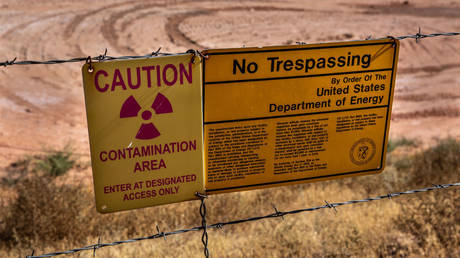CRITICAL: Restoring U.S. Uranium…

Why Joining UAW Would Hurt Volkswagen Employees
In her latest article, CECE director Diana Furchtgott-Roth explains why a unionized Volkswagen (VW) would raise the cost of vehicles and cause layoffs among VW workers:
Volkswagen workers in Chattanooga, Tennessee, will vote this week on whether to join the United Auto Workers [UAW]….
Dues for UAW hourly workers are 2.5 hours of pay per month. With average wages of $40 an hour, that’s $100 a month in dues, or $1,200 a year. This would help shore up the pensions of the UAW’s 580,000 retirees and pay the salaries of union officials….
Unionization would raise vehicle costs, undercutting VW’s competitiveness relative to the auto companies that were not represented by unions. For instance, Jim Farley, Ford’s chief executive officer, said earlier this year that Ford had a $7 billion to $8 billion cost disadvantage over other firms due to higher costs.
Higher costs from unionization are one reason the Big Three are announcing layoffs….
[United Auto Workers president Shawn] Fain knows that electrification of the automobile will mean fewer auto workers. He said, “Stellantis’ push to cut thousands of jobs while raking in billions in profits is disgusting. … Even now, politicians and taxpayers are bankrolling the electric vehicle transition, and this is the thanks the working class gets.”
Read the full article here.
The High Costs and Questionable Gains of Extended Producer Responsibility
In a recent article for The Daily Signal, Miles Pollard, a policy analyst, and Hope Canlas, a member of Heritage’s Young Leaders Program, examine New Jersey’s plastic-bag ban;
As we approach Earth Day, it is time to evaluate how green policies have performed. Once such policy is the New Jersey Bag Ban which was ostensibly designed to tackle plastic pollution, requiring stores over 2,500 square feet to replace disposable plastic bags with reusable ones.
The ban bag is an example of “extended producer responsibility,” which is a waste policy that forces companies to use only reusable or recyclable products. Advocates of extended producer responsibility champion measures such as plastic bag bans, but the real-world implementation has only fueled inflation with minimal environmental benefits.
Researchers concluded that 90% of these reusable non-woven polypropylene plastic bags are used only 2 to 3 times before being thrown away or lost. To add insult to injury, reusable bags use 15 times more plastic and emit 5 times the greenhouse gases during production compared to regular plastic bags.
Instead of forcing everyone to use reusable bags that are emitting more greenhouse gases, the Alliance argues that disposable bags should be properly recycled. These disposable plastic bags are then more easily used to create new bags, with the alliance having a goal of 20% being made of recyclable material by 2025.
Read the full article here.



